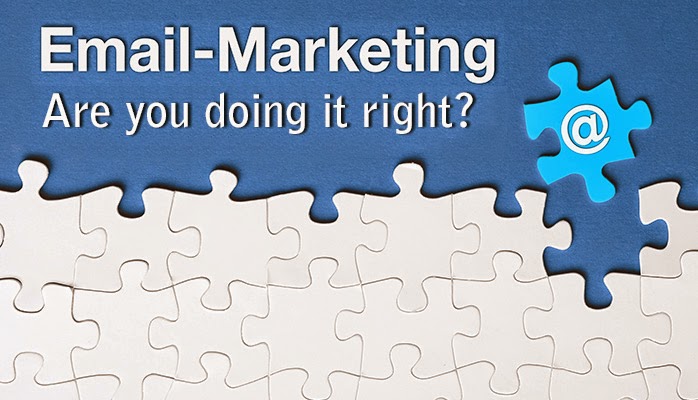E- marketing
Internet marketing, also referred to as web marketing, online marketing, or eMarketing, is the marketing of products or services over the Internet.
The Internet has brought many unique benefits to marketing, one of which being lower costs for the distribution of information and media to a global audience. The interactive nature of Internet marketing, both in terms of providing instant response and eliciting responses, is a unique quality of the medium. Internet marketing is sometimes considered to have a broader scope because it not only refers to digital media such as the Internet, e-mail, and wireless media; however, Internet marketing also includes management of digital customer data and electronic customer relationship management (ECRM) systems.
Internet marketing ties together creative and technical aspects of the Internet, including design, development, advertising, and sale.
Internet marketing also refers to the placement of media along different stages of the customer engagement cycle through search engine marketing (SEM), search engine optimization (SEO), banner ads on specific websites, e-mail marketing, and Web 2.0 strategies. In 2008 The New York Times working with comScore published an initial estimate to quantify the user data collected by large Internet-based companies. Counting four types of interactions with company websites in addition to the hits from advertisements served from advertising networks, the authors found the potential for collecting data upward of 2,500 times on average per user per month.
Business models
Internet marketing is associated with several business models:
- e-commerce — goods are sold directly to consumers (B2C) or businesses (B2B),
- publishing — the sale of advertising,
- lead-based websites — an organization generates value by acquiring sales leads from its website, and
- affiliate marketing — A process in which a product or service developed by one person is sold by other active seller for a share of profits. The owner of the product normally provide some marketing material ( sales letter, affiliate link, tracking facility).
There are many other business models based on the specific needs of each person or business that launches an Internet marketing campaign.
Advantages
Internet marketing is relatively inexpensive when compared to the ratio of cost against the reach of the target audience. Companies can reach a wide audience for a small fraction of traditional advertising budgets. The nature of the medium allows consumers to research and purchase products and services at their own convenience. Therefore, businesses have the advantage of appealing to consumers in a medium that can bring results quickly. The strategy and overall effectiveness of marketing campaigns depend on business goals and cost-volume-profit (CVP) analysis.
Internet marketers also have the advantage of measuring statistics easily and inexpensively. Nearly all aspects of an Internet marketing campaign can be traced, measured, and tested. The advertisers can use a variety of methods: pay per impression, pay per click, pay per play, or pay per action. Therefore, marketers can determine which messages or offerings are more appealing to the audience. The results of campaigns can be measured and tracked immediately because online marketing initiatives usually require users to click on an advertisement, visit a website, and perform a targeted action. Such measurement cannot be achieved through billboard advertising, where an individual will at best be interested, then decide to obtain more information at a later time.
Internet marketing as of 2007 is growing faster than other types of media.[citation needed] Because exposure, response, and overall efficiency of Internet media are easier to track than traditional off-line media—through the use of web analytics for instance—Internet marketing can offer a greater sense of accountability for advertisers. Marketers and their clients are becoming aware of the need to measure the collaborative effects of marketing (i.e., how the Internet affects in-store sales) rather than siloing each advertising medium. The effects of multichannel marketing can be difficult to determine, but are an important part of ascertaining the value of media campaigns.
Limitations
Internet marketing requires customers to use newer technologies rather than traditional media. Low-speed Internet connections are another barrier: If companies build large or overly-complicated websites, individuals connected to the Internet via dial-up connections or mobile devices may experience significant delays in content delivery.
From the buyer's perspective, the inability of shoppers to touch, smell, taste or "try on" tangible goods before making an online purchase can be limiting. However, there is an industry standard for e-commerce vendors to reassure customers by having liberal return policies as well as providing in-store pick-up services.
A survey of 410 marketing executives listed the following barriers to entry for large companies looking to market online: insufficient ability to measure impact, lack of internal capability, and difficulty convincing senior management.


Comments
Post a Comment